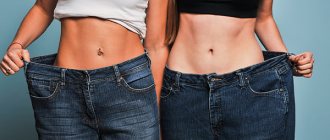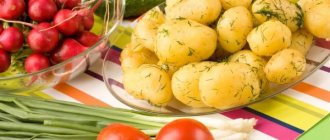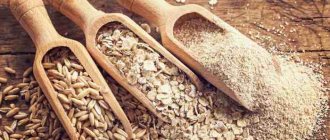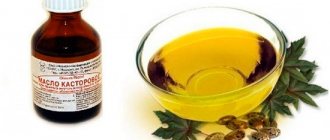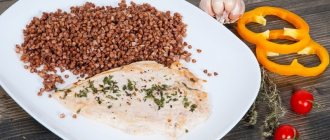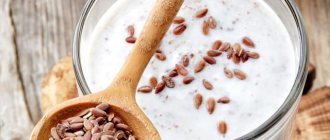Irritable bowel syndrome is a pathology associated with unfavorable symptoms (constipation, diarrhea, flatulence, colitis). The basis of treatment is proper nutrition. A therapeutic diet for irritable bowel syndrome, which involves limiting foods that aggravate the digestive process, will help reduce the signs of the disease or completely eliminate them.
General information
Irritable bowel syndrome is a disorder in the functioning of the digestive system. The condition causes stool and stomach upset and spasms. Deviation appears as a result of psychological shocks and stress. IBS is most often observed in women aged 25-40 years, however, there have been cases of development in young children and adolescents.
This condition does not change the composition and consistency of stool. The disease is not life-threatening and does not cause pathological disorders in the structure of the intestines, but only causes discomfort in the abdominal area.
The causes of irritable bowel syndrome are:
- psychological disorders (depression, panic attacks);
- intake of provoking foods and drinks (fatty, salty foods, chocolate, coffee, alcohol);
- binge eating;
- infectious pathologies (Crohn's disease, GERD, acute intestinal diseases);
- heredity;
- exposure to medications;
- acceleration or inhibition of intestinal motility.
IBS is accompanied by the following symptoms:
- general malaise, abdominal pain;
- constipation or diarrhea;
- feeling of incomplete bowel movement;
- bloating, increased gas formation;
- fatigue, anxiety;
- mucus in stool;
- chills, headache.
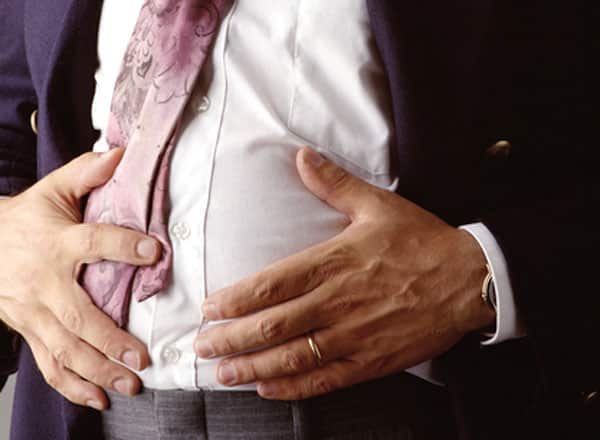
If there is a change in the color of stool and sudden weight loss, you should immediately consult a doctor.
For what conditions is it prescribed?
This syndrome occurs differently in all patients. The diet is prescribed for the following types of pathology:
- with constipation;
- diarrhea (diarrhea);
- severe pain syndrome;
- flatulence;
- mixed type.
All patients experience common symptoms of IBS:
- Abdominal pain that subsides after defecation.
- Feeling of incomplete bowel movement.
- Frequent urge to go to the toilet.
- Change in the consistency of stool (hard, watery, with the presence of mucus).
The disease is also accompanied by autonomic disorders: headaches, feeling of lack of air, phobias, panic attacks, insomnia.
Treatment of IBS is carried out in three areas:
- Drug therapy.
- Dieting.
- Psychological help.
The choice of diet depends on the prevailing symptoms. The doctor selects a diet individually for each patient , taking into account his condition and food tolerance.
Principles of nutrition
Nutrition for irritable bowel syndrome is selected depending on the degree of expression of symptoms and the type of disease. The syndrome can be accompanied by pain, constipation, diarrhea, flatulence, however, the main principles are the same for everyone. An approximate diet and list of permitted foods are prescribed by a specialist.
The basic rules of the diet for IBS are:
- Moderate but regular consumption of food. You need to eat on time, you can’t skip the next meal. If a person is at work, you need to take home-made food with you.
- Meals should be frequent - you need to eat 4-6 times a day in small portions.
- You need to eat every 3 hours - the most suitable option, during this time you will not feel hungry, have a heaviness in the stomach, or overeat.
- Approximately 3 hours should pass after eating. You should not go to bed right away to avoid indigestion and an increase in painful symptoms. Eat light food, preferably with protein.
- The menu should be varied with liquid soups, cereals, and dairy products.
- It is necessary to exclude fast food products, spicy, fried, fatty foods.
- You can keep a diary and note in it all the ingredients you eat, this makes it easier to determine the cause of the syndrome and the food that caused the condition to worsen.
- Drink at least 2 liters of liquid per day: purified water, mineral water without gases, dried fruit compotes.
Nutritional rules must be followed by the patient. During therapy, it is important to remain calm and restore the hourly diet.

Dietary nutrition is aimed at relieving unpleasant symptoms. The basis of the diet should be foods high in dietary fiber.
Effect on the patient's body
Following a diet is important during an exacerbation of the disease. Eliminating foods that cause discomfort has a positive effect on digestion: stool normalizes and flatulence disappears .
Once symptoms have subsided, you can gradually diversify your diet. When combining diet with drug treatment, good results are achieved.
Many patients feel psychological discomfort because they cannot eat out or have to carry food with them. It’s hard to give up your favorite dishes and desserts. What makes the situation worse is that some patients are forced to diet for the rest of their lives.
Recommended Products
If you have irritable bowel syndrome, you are allowed to eat low-fat dishes and foods with a large amount of protein, fiber, and carbohydrates:
- broths from vegetables, meat, low-fat fish;
- wheat, buckwheat, pearl barley porridge cooked in water;
- dietary meat (beef, rabbit, nutria) steamed, boiled, baked;
- crackers from white wheat bread;
- vegetables (cauliflower, carrots), thoroughly heat-treated;
- baked apples;
- Among the drinks, berry jelly, weak tea, and rosehip decoction have an effective effect on the body;
- low-fat fermented milk products (kefir, cottage cheese, homemade yogurt).
The list of acceptable products can be slightly narrowed or increased in accordance with the presence of symptoms, as well as the individual characteristics of the body.
What not to eat
The list of prohibited foods depends on the type of IBS:
| It is forbidden to eat if you are constipated | Avoid eating if you have diarrhea | It is forbidden to eat during flatulence |
| Coffee, chocolate, cocoa | Sweets | Sugar, confectionery |
| Decoction of bird cherry, dogwood | Dairy | Milk |
| Pastries, wheat bread | Condensed milk, ice cream | Legumes |
| Boiled rice and soups based on it | Legumes | Cabbage, asparagus, radish, radish |
| Slimy soups | Raw vegetables | Fresh herbs |
| Grilled meat | Raw fruits, juices | Fruits, undiluted juices |
| Lard, animal fat | Carbonated drinks | Carbonated drinks |
| Strong tea | Vegetable oil | Coffee |
| Sausage | Fatty meat, fish | Sausage products |
Prohibited Products
If you are ill, you should limit foods that irritate the intestines, cause gas formation, fermentation, and increase peristalsis.
List of harmful products:
- salty, fatty, fried foods;
- marinades, smoked meats, sausages;
- fresh fruits, vegetables;
- legumes, mushrooms, grapes, cabbage;
- berries that provoke fermentation;
- condensed milk, confectionery, chocolate;
- strong brewed tea, coffee, alcohol, soda;
- crackers, chips, fast foods;
- fatty meats (pork, lamb);
- semi-finished products;
- pastry products;
- Do not drink drinks with gas;
- refined sugar.
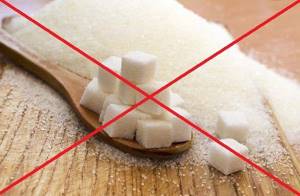
This list should be taken seriously; it can be supplemented in case of individual intolerance. If the recommendations are not followed, the syndrome will worsen and the pathological signs will become more complicated.
It is worth noting that with different signs of manifestation in adults, therapeutic nutrition will differ.
Diet for constipation and flatulence
Features of the diet for irritable bowel syndrome with flatulence, constipation, that is, a mixed type, involve taking foods that have a laxative effect. Nutritional rules are designed to stimulate intestinal motility. For constipation associated with intense pain, food should be crushed and mixed with vegetable oil. If there is no pain, you can cut it finely and not. The main thing is to steam it and avoid fried food.
The therapeutic diet for IBS with constipation is as follows:
- it is allowed to eat vegetable salads and drink drinks without gases;
- supplement the diet with vegetable fiber: pureed buckwheat porridge, pearl barley, muesli, dried fruits, baked vegetables;
- Replace vegetable oil with sunflower and olive oil;
- yesterday's rye bread;
- minimize the intake of pasta, semolina, white bread;
- with increased gas formation, bloating, cross out milk, grapes, cabbage;
- eat cereals, meat, and low-fat fish;
- Dietary nutrition for IBS with flatulence requires the exclusion of sweets, various cereals, chocolate, and baked goods;
- Regularly consume prunes, fermented milk products, and beets. You can prepare a decoction of dried fruits and rose hips.
Grind the products or cut them into small pieces. Drink 2 liters of liquid, this can be mineral water without gases, freshly squeezed juice.
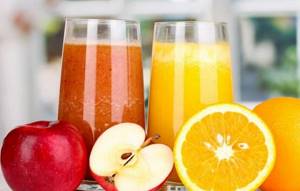
Homemade natural yogurt helps restore intestinal microflora. After all, a common cause of flatulence is considered to be a violation of the flora. If you can’t adjust your stool on your own at home, you need to consult a proctologist or gastroenterologist.
Prevention
- First of all, you need to follow all the rules of a healthy and balanced diet developed for a specific patient.
- The main thing is to eat strictly according to the clock, because the stomach adapts to the environment and prepares to digest food. If food does not arrive at the specified time, stomach acid begins to eat away at the delicate lining.
- It is recommended to grind the food thoroughly; it is better to use a blender. You can prepare puree soups, pasty stews, and jelly.
- It is mandatory to give up bad habits, as well as quick snacks on the street. Fast food with a lot of fat negatively affects the functioning of the stomach and leads to various diseases such as ulcers.
- It is better to steam or bake in the oven with a minimum amount of fat. You can bake dietary meat and fish with various vegetables, prepare casseroles and steamed cutlets.
- Food should be at room temperature, especially with gastric ulcers. Frozen foods are prohibited, as they also cause pain in different parts of the stomach.
- Regularly taking medications prescribed by a qualified doctor.
Nutrition for diarrhea
Dietary nutrition for IBS with diarrhea will help reduce bile secretion and prevent the rotting of food particles in the intestines. It is recommended to eat foods that solidify feces and stop diarrhea. They are rice water, homemade daily kefir, and strong brewed tea. You need to avoid prunes, beets, and carrots - they have a laxative effect.
If you have IBS with diarrhea, you can eat the following:
- steam omelet, baked apples - they contain a lot of pectin;
- Every day it is preferable to eat rice or buckwheat soup;
- black currants, freshly squeezed cherry juice, fresh tea - they have a high tannin content;
- Vegetable purees, steamed cutlets, low-fat cottage cheese, jelly have a beneficial effect on the body; you can also eat casseroles, meatballs, crackers, jelly;
- with diarrhea, you should avoid sweets, baked goods, cream cakes, cream;
- Dishes with a lot of fiber (legumes, walnuts, white bread, berries, fresh vegetables and fruits) should be avoided; eating bran is also not recommended;
- harmful to the intestines: sour milk, coffee, juices, mushrooms, canned food, seaweed, marinades, smoked meats, pickles;
- Alcoholic drinks are strictly prohibited.
You can eat warm food, hot and cold will irritate the intestines. Take only pureed or finely ground foods.
Why is it important to eat right if you have irritable bowel syndrome?
Irritable bowel syndrome with diarrhea is a disease in which pain, discomfort, and bloating occur in the stomach for no apparent reason, without disrupting the functioning of the gastrointestinal tract. Studies have shown that pathology occurs as a result of hormonal changes or minimal inflammation of the mucous membrane. In some patients, irritable mucous syndrome appears after an intestinal infection.
The only universal way to improve the condition, found by doctors, is diet. For patients with IBS with diarrhea, a food card and menu have been developed to relieve pain. Often, irritable and chronically diseased bowel syndrome appears against the background of an allergic reaction or food intolerance. Menu planning must be done carefully.
Additional difficulties include diarrhea and flatulence. The diet limits the consumption of plant foods and focuses on probiotics. For constipation, boiled and stewed vegetables are recommended.
For irritable bowel syndrome with diarrhea, a regular diet of 1700 kcal per day is assumed (if there is no excess body weight). A third of the diet consists of carbohydrates, 40% vegetable fats, proteins - no more than 100 g per day.
By following the diet, pain goes away, digestion is restored, and diarrhea ends.
Nutrition for pain
The features of the diet for irritable bowel pain with pain are almost the same as for diarrhea. The pain appears due to excessive activity of the intestines; therefore, food should be crushed and warm. You should eat every 3 hours, a single dose should not exceed 200 g.
Treatment for IBS with pain and colitis can be done as follows:
- eat boiled vegetables, eggs;
- instead of tea and coffee, use herbal infusions, lingonberry and bird cherry compotes;
- stewed meat, boiled fish;
- give up milk and fermented milk products; you can use sour cream and cottage cheese in small quantities;
- exclude bran, nuts, mushrooms - they contain a lot of coarse fiber;
- pasta, sweets, legumes, baked goods, seasonings, mayonnaise, sauces, cabbage, carrots, onions, grapes, bananas are harmful to the intestines.
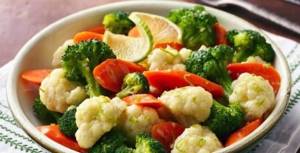
Eat food at room temperature. It is better to replace plums and citruses with apples. Only boiled potatoes are acceptable. In addition to the diet for the treatment of irritable bowel disease, take medications prescribed by your doctor, and maintain rest and routine.
Sample menu
Depending on the disturbed digestive processes and the manifestations of symptoms, you can create a sample menu.
Approximate diet for IBS with constipation
Breakfast I (to choose from):
- buckwheat or pearl barley porridge with dried apricots;
- boiled egg or steam omelet;
- cottage cheese casserole;
- You can add bread and butter and tea to your chosen dish.
Breakfast II:
- apple or pear;
- boiled egg;
- yogurt.
Dinner:
- vegetable soup;
- goulash or boiled fish with stewed vegetables;
- the vinaigrette;
- juice or dried fruit compote.
Afternoon snack (optional):
- fruit salad;
- grated carrots with vegetable oil.
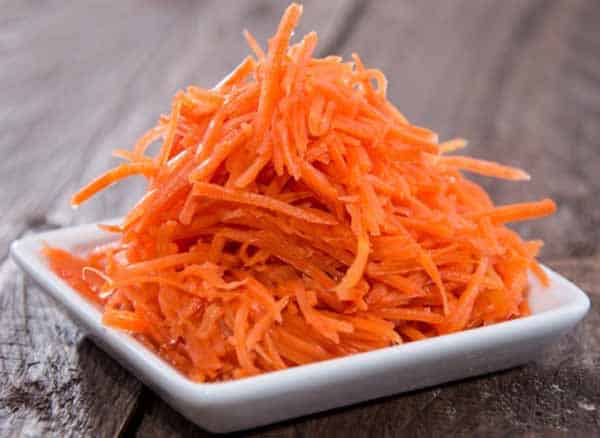
Dinner I:
- cabbage rolls or beef and pea stew;
- fruit juice or herbal infusion.
Dinner II: a glass of kefir.
Sample menu for diarrhea
Breakfast I (to choose from):
- semolina or buckwheat porridge;
- cottage cheese or casserole;
- add bread and butter or biscuits to the selected dish;
- coffee or tea.
Breakfast II:
- curd pudding or fruit jelly;
- boiled egg, glass of milk.
Dinner:
- rice soup with meatballs;
- steamed cutlet with vermicelli;
- cocoa or jelly.
Afternoon snack (optional):
- pear, banana;
- applesauce, pomegranate.
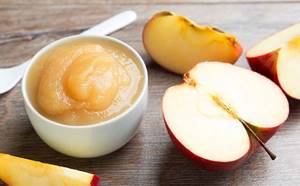
Dinner I:
- steamed lean fish;
- mashed potatoes;
- herbal decoction or juice.
Dinner II: rice water.


